
Table of Contents
Understanding Emotions: The Basics
Emotions are those delightful little things that make life colorful, complex, and sometimes downright a confusing behavior. They can swing from elation to despair faster than you can say “emotional roller coaster!” But what exactly are emotions? At their core, emotions are responses to stimuli, whether internal or external. They tell us how to react to situations, shaping our behaviors and interactions with others. Think of them as the brain’s way of processing experiences, guiding us through the labyrinth of life.
Now, why are emotions so crucial in our everyday lives? Well, they influence our decisions, relationships, feelings and even our physical health. Imagine trying to have a productive day at work while feeling miserable or anxious. It would be like trying to run a marathon in flip-flops! Emotions serve as signals, helping us navigate everything from friendships to career choices, ensuring we’re not stumbling blindly through life. Recognizing and understanding our feelings can lead to healthier interactions and a better quality of life.
Nutrition: The Hidden Influence
How Your Diet Affects Your Mood
Let’s face it: you are what you eat. Literally! The foods you consume play a massive role in regulating your mood and emotional well-being. When you munch on donuts for breakfast, you might feel a sugar rush followed by an emotional crash. On the other hand, including nutritious foods like fruits, vegetables, and whole grains can stabilize your mood and boost your energy levels. This connection between nutrition and emotions is backed by science; researchers have found that specific nutrients can significantly impact neurotransmitter function and hormone regulation.
For instance, omega-3 fatty acids found in fish have been linked to lower levels of depression. They help regulate serotonin, often dubbed the ‘feel-good’ hormone. Similarly, B vitamins are crucial for brain health and can help ward off feelings of fatigue and irritability. So next time you’re reaching for that bag of chips, consider swapping it for a handful of nuts or a piece of fruit. Your mood will thank you!
Electrolytes: The Mood Boosters You Didn’t Know You Needed
Electrolytes might sound like something from a science fiction movie, but they are real-life heroes when it comes to your emotional health! These essential minerals—like sodium, potassium, and magnesium—are vital for maintaining your body’s fluid balance and overall cell function. They can also have a surprising impact on your mood. For example, low magnesium levels can lead to feelings of anxiety and irritability, making you feel like a grumpy cat on a rainy day.
Incorporating electrolyte-rich foods into your diet can help keep your mood in check. Think bananas for potassium, spinach for magnesium, and yogurt for calcium. Staying hydrated is equally important; dehydration can lead to fatigue and mood swings, so don’t forget to drink plenty of water throughout the day. Your brain will thank you, and you may even find yourself smiling more!
Trace Minerals: Tiny Heroes in Your Emotional Arsenal
When it comes to nutrition, trace minerals may not get the spotlight they deserve, but they are the unsung heroes in the grand scheme of emotional health. These include zinc, copper, and selenium, which, despite being required in minute amounts, play significant roles in our well-being. For instance, zinc is crucial for the production of neurotransmitters, which regulate our moods and emotional responses. A deficiency in zinc can lead to feelings of sadness and lethargy—definitely not the vibe we’re aiming for!
Selenium is another trace mineral that can help combat anxiety and stress. It’s found in foods like Brazil nuts and fish. Meanwhile, copper is essential for healthy brain function and may help protect against mood disorders. By ensuring you’re getting enough of these minor players in your diet, you can create a more robust emotional foundation. It’s all about giving your body what it needs to keep your mind happy!
The Connection Between Toxic Metals and Emotions
What Are Toxic Metals and Why Should You Care?
Toxic metals like lead, mercury, and cadmium might sound like something out of a horror movie, but they’re real dangers lurking in our environment. These metals can enter our bodies through various sources, including contaminated water, polluted air, and even certain foods. And the scary part? They can wreak havoc on our mental health. Studies have indicated that exposure to these toxic elements can lead to mood disorders, anxiety, and cognitive decline.
Why should you care? Well, because your emotional well-being is at stake! Keeping an eye on your exposure to these metals is crucial. Regularly checking your environment for potential sources of toxicity and being mindful of the foods you consume can help minimize their impact. For instance, certain fish are known to have high mercury levels, so choosing lower-mercury options can be a smart move for your emotional health.
How Toxic Metals Mess with Your Emotions
Imagine your brain as a finely tuned orchestra, with various instruments playing in harmony. Toxic metals can act like a disruptive conductor, leading to chaos and dissonance. Lead exposure has been linked to increased irritability and anxiety, while mercury can cause cognitive impairments, leading to emotional instability. This is because heavy metals can interfere with neurotransmitter function and cause oxidative stress, essentially throwing a wrench into the emotional machine.
Moreover, the effects of toxic metals can be cumulative, meaning that long-term exposure can lead to chronic issues. If you suspect you’ve been exposed to toxic substances, it’s essential to consult a healthcare professional for guidance. Just call us at Health Always! Awareness is the first step in tackling the problem and safeguarding your emotional health.
Detoxing Your Way to a Happier You
Feeling a bit bogged down by the thought of toxic metals? Fear not! Detoxification is a viable pathway to rid your body of these unwanted guests. There are several approaches to detoxing that can support emotional well-being. First, consider adding more detoxifying foods to your diet, such as leafy greens, cruciferous vegetables, and berries. These foods are rich in antioxidants and can help combat oxidative stress caused by toxic metals.
Regular Exercise
Regular physical activity also plays a role in stabilizing energy levels. Exercise promotes blood circulation and helps regulate glucose levels, providing a natural boost in mood. Use regular exercise as a powerful tool; it releases endorphins, which can help boost mood and alleviate stress. Finding activities you enjoy can turn exercise into a rewarding experience rather than a chore.
Additionally, hydration plays a vital role in flushing out toxins. Drinking plenty of water and herbal teas can help support your body’s natural detox processes.
Supplements
Some people also turn to supplements, such as activated charcoal or chlorophyll, which are thought to help detoxify the body. However, it’s always best to consult a healthcare professional before starting any supplement regimen. You may want to contact Dr. Ray at Health Always for his expert advice. Remember, detoxing isn’t just a trend; it’s a pivotal step toward achieving emotional balance!
Putting It All Together: A Happy Diet for a Happier You
Foods to Eat for Better Emotions
Now that we’ve delved into the fascinating relationship between emotions and nutrition, let’s put together a list of foods that can help elevate your mood. Here’s a handy guide to creating a happier plate:
- Fatty Fish: Salmon, mackerel, and sardines are rich in omega-3 fatty acids.
- Nuts and Seeds: Almonds, walnuts, and chia seeds are great sources of healthy fats and magnesium.
- Fruits and Vegetables: Berries, bananas, spinach, and kale boost your vitamin and mineral intake.
- Whole Grains: Oats, brown rice, and quinoa help stabilize blood sugar levels.
- Dark Chocolate: Yes, you read that right! Dark chocolate can enhance mood and reduce stress.
By incorporating these foods into your diet, you’re not only nourishing your body, but you’re also feeding your emotional health. A balanced diet rich in these ingredients can lead to improved mood stability and overall well-being.
Foods to Avoid: The Emotional Party Poopers
Just as there are foods that can uplift your spirits, there are also those that can bring you down faster than a lead balloon. Here’s a list of emotional party poopers to keep at bay:
- Processed Foods: Often loaded with sugar and unhealthy fats, which can lead to mood swings.
- Sugar: While it provides a quick energy spike, the subsequent crash can leave you feeling low.
- Alcohol: Can act as a depressant and lead to increased anxiety and mood instability.
- High-Caffeine Beverages: Excessive caffeine can lead to jitteriness and anxiety.
- Trans Fats: Found in many fried and baked goods, they can negatively impact mental health.
By steering clear of these mood-dampening foods, you’ll create a more supportive environment for emotional wellness. Your body and mind will thank you for it!
Creating Your Own Emotional Nutrition Plan
Now that you’re equipped with the knowledge of what to eat and what to avoid, it’s time to create your own emotional nutrition plan. Start by assessing your current diet and identifying areas for improvement. Are you consuming enough fruits and veggies? Are there too many processed snacks sneaking into your meals? Don’t worry; this isn’t about strict dieting; it’s about making mindful choices.
Create a weekly meal plan that incorporates the foods we’ve discussed. Aim for a colorful plate, filled with a variety of nutrients. Remember, it’s okay to indulge occasionally. The key is balance. Monitor how your mood fluctuates with your diet. Keeping a food diary might help you pinpoint which foods are lifting you up or dragging you down. Adjust your choices accordingly, and over time, you’ll find a dietary routine that supports your emotional wellness perfectly.
Taking Moments
Mindfulness practices, such as meditation or deep breathing exercises, can also help regulate emotions. Taking moments throughout the day to pause and reflect can create a sense of calm and improve emotional resilience. Lastly, ensuring adequate sleep is crucial, as fatigue can significantly impact mood and emotional health.
Final Thoughts: Humor as a Tool for Emotional Health
As we wrap up this journey through the emotional landscape, let’s not forget the power of humor. Laughter truly is one of life’s best medicines! It can alleviate stress, boost your mood, and strengthen social bonds. Engaging in activities that make you laugh—whether it’s watching a comedy show, going to a stand-up event, or simply sharing funny memes with friends—can promote emotional resilience and enhance your overall well-being.
Incorporating humor into your daily life can serve as a buffer against emotional turbulence. It encourages a positive mindset, helping you see the brighter side of life even during tough times. So, don’t be shy—let your laughter ring out! Your emotional health will definitely reap the rewards.
Your Journey to Balancing Emotions and Nutrition
In conclusion, the connection between emotions and nutrition is a fascinating, multi-layered relationship that you have the power to influence positively. By understanding how your diet can impact your emotional state, you can make informed choices that nurture both your body and mind. From incorporating mood-boosting foods to avoiding emotional downers, every small change counts.
As you embark on this journey towards better emotional wellness, remember to keep it light and enjoyable. Life is too short to be serious all the time, and embracing the humorous side of life can turn a potentially daunting task into an adventure of discovery. Here’s to a happier, healthier you—one bite and one laugh at a time!
FAQs
How does emotion affect behavior?
Emotions can strongly influence behavior. Positive emotions like happiness and excitement often lead to approach behaviors, while negative emotions like fear and anger commonly trigger avoidance or aggressive behaviors.
How do emotions and thoughts affect behavior?
Emotions and thoughts significantly influence behavior by shaping decision-making, driving actions, and determining responses to situations. Positive emotions can enhance motivation and lead to proactive behaviors, while negative emotions may result in avoidance or withdrawal. Cognitive patterns, such as beliefs and perceptions, also guide how individuals interpret experiences and react to challenges, ultimately impacting their overall behavior.
How do emotions affect attitudes?
Emotions can significantly influence attitudes. Positive emotions tend to foster more favorable attitudes, while negative emotions often lead to more unfavorable attitudes.
Can food really affect my mood?
Yes, certain foods can affect your mood. Consuming foods high in nutrients like omega-3s, B vitamins, and magnesium can improve mood and reduce symptoms of depression and anxiety. Limiting processed foods, sugar, and caffeine may also have a positive impact on your mental state.
What are some quick mood-boosting foods?
Quick mood-boosting foods include fatty fish like salmon, nuts, seeds, fruits like bananas and berries, and dark chocolate!
Are there foods to avoid for better mental health?
According to research, the following foods may negatively impact mental health: processed foods, refined carbs, alcohol, caffeine, and foods high in added sugars. Choosing whole, nutrient-dense foods can support better cognitive function and mood.
How can I detox from toxic metals?
Here are some tips to help detox from toxic metals:
Eat more cilantro, chlorella, and spirulina. Increase your fiber intake. Stay hydrated. Consider a chelation supplement like EDTA or DMSA under medical supervision.
How can humor help with emotional wellness?
Humor can help with emotional wellness by reducing stress, boosting mood, and fostering social connections.
At Home Tests
-
←→

Analytical Research Labs Hair Test
$179.00$149.00Providing a mineral blueprint of one’s biochemistry, an Analytical Research Labs Hair Minerals Test reports levels of minerals and heavy metals in your body giving possible reasons for your symptoms, with suggestions for nutritional supplements and diet changes. Hair tissue mineral analysis can provide pertinent information about balanced nutrition, one’s metabolic rate, energy levels, sugar and carbohydrate tolerance, stage of stress, immune system and glandular activity.- Buy 2 at $145.00
Analytical Research Labs Hair Test
$179.00 $149.00Successfully Added to your Shopping CartAdding to Cart... -
←→
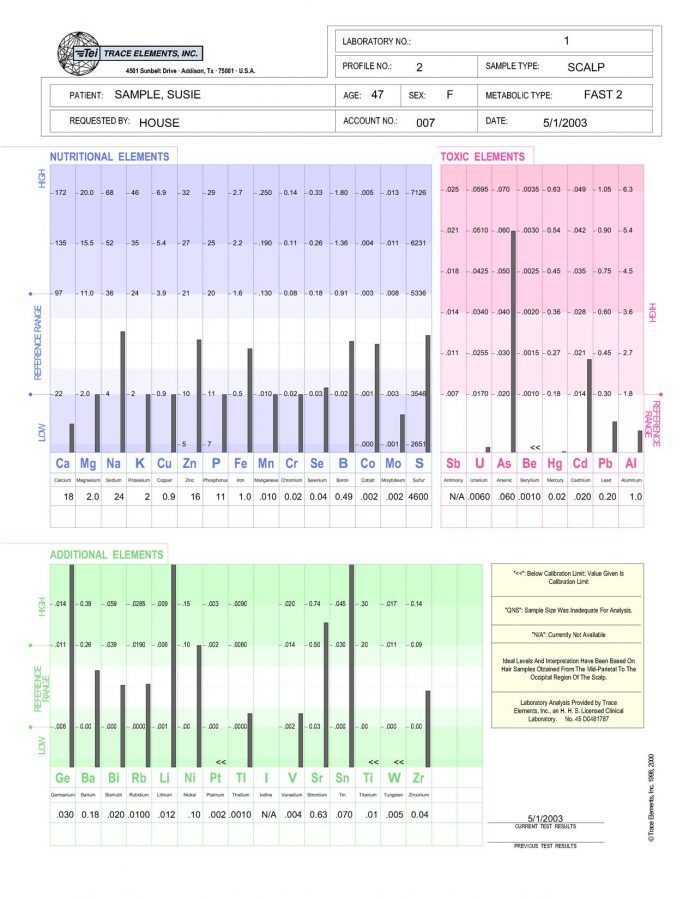
Trace Elements Nutritional Deficiencies Hair Test
Nutritional Tests, At Home Health Tests, Toxic Metals Tests, Hair Tests, Autism Tests, Immune System Tests$188.00 $148.00Successfully Added to your Shopping CartAdding to Cart...
Products
-
←→
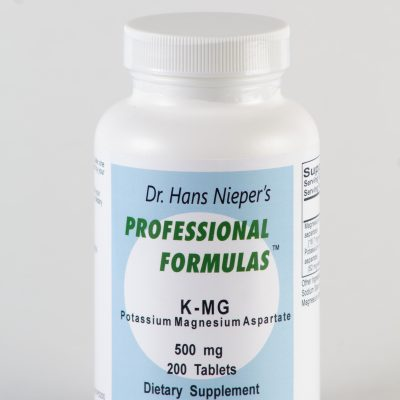
K-MG Potassium Magnesium
Supplements, Mineral Supplements, Headache Solutions, Heart Solutions, Muscle Solutions, Lung Solutions, Memory Loss Solutions, Anxiety, Stress, Depression Solutions$13.10Successfully Added to your Shopping CartAdding to Cart... -
←→
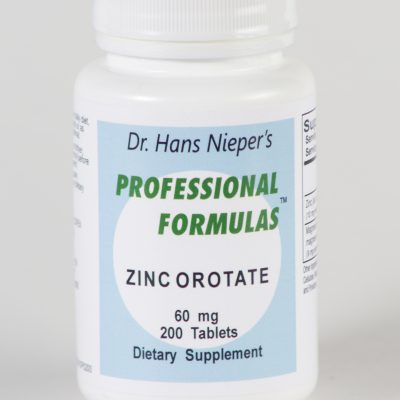
Zinc Orotate
Supplements, Mineral Supplements, Immune System Solutions, Heart Solutions, Hormone Solutions, Probiotics Supplements, Bone Solutions, Antioxidant Supplements, Autism Solutions$10.40Successfully Added to your Shopping CartAdding to Cart... -
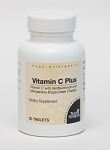
-
←→
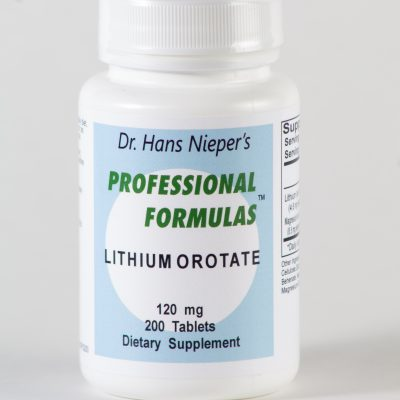
Lithium Orotate
Supplements, Mineral Supplements, Autism Solutions, Nerve Damage Solutions, Immune System Solutions, Gastrointestinal Solutions$16.30Successfully Added to your Shopping CartAdding to Cart...
References
- https://doi.org/10.1093/cercor/10.3.295
- https://doi.org/10.1002/hbm.20002
- https://doi.org/10.1016/j.concog.2004.10.004
- https://doi.org/10.1038/nrn2317
- https://doi.org/10.1016/j.tics.2005.03.010
